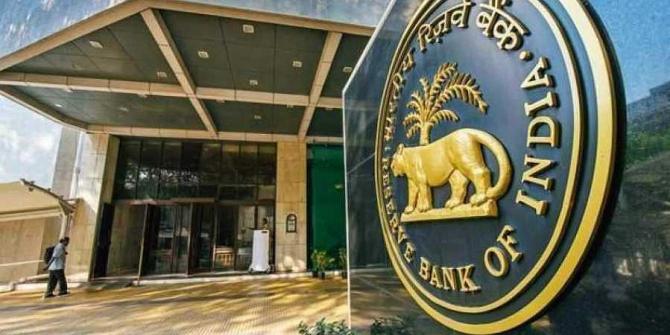The Reserve Bank of India (RBI) has announced a dollar–rupee two-year sell-buy swap auction for $5 billion on March 8, which will suck out rupee liquidity from the system.

The swap will be in the nature of a simple sell/buy foreign exchange from the RBI side, in which a bank will buy US dollars from the central bank and simultaneously agree to sell the same amount of US dollars at the end of the swap period.
“With a view to elongating the maturity profile of its forward book and smoothen the receivables relating to forward assets, it has been decided to undertake sell/buy swap auction of $5 billion on March 8, 2022,” the RBI said in a statement.
The auction cut-off will be based on the premium amount in paisa terms up to two decimal points.
In the first leg of the transaction, the bank will buy US dollars from the RBI at the FBIL Reference Rate of the auction date.
The settlement of the first leg of the swap will take place on spot basis from the date of transaction and the RBI will debit the Rupee funds from the current account of the successful bidder and the bidder will receive US dollars into its nostro account.
In the reverse leg of the swap transaction, that is, after two years, US dollars will have to be returned to the Reserve Bank, to get the Rupee funds back including the swap premium.
Market participants said the move would suck out liquidity ahead of the initial public offering of Life Insurance Corporation of India (LIC) and other such issues that are lined up in March – to the tune of $18 billion.
“The FX swap tool would also prepare RBI to manage the gush of dollar flows ahead of the LIC IPO and other smaller IPOs lined ahead in the coming month(s) amounting to $15-18bn+,” said Madhavi Arora, lead economist, Emkay Global.
“The sell-buy swap would thus be used tactically by the RBI as one of the tools to smoothen banking system liquidity,” Arora said.
Foreign exchange players said the move is positive for rupee and will push up dollar/rupee forward premium.
“The RBI wants to absorb the liquidity pertaining to LIC IPO,” said Amit Pabari, managing director, CR Forex.
“This will result in forward premia going up,” he added.
The RBI had a long forward book of $49.1 billion as of end-December.
Of that, net $699 million long dollar positions were to mature in up to one month, $1.2 billion in more than one to three months, while $47.2 billion were to mature in more than three months to a year.
In March 2019, the RBI announced a dollar-rupee swap for $5 billion to boost liquidity, where it purchased dollars to infuse rupee liquidity.
The latest announcement was also aimed to suck out that dollar liquidity that will be coming in due to that end of the three-year swap period.
The dollar-rupee sell buy is also seen as a balance sheet management exercise of the central bank before the account closing on March 31.
“This is firstly a balance sheet management exercise by the RBI.
"It will allow them to book some profits as well as reduce the forex reserves size.
"That would imply lower capital buffers to be set aside when the annual accounts are closed on March 31 and that would improve RBI’s ability to pay dividends,” said A Prasanna, head (fixed income research) at ICICI Securities PD.
“As a byproduct this move will also suck out rupee liquidity from the money market.
"However, I don’t think this is the primary objective as using the forex market for liquidity management would be expensive.
"Ideally the RBI should only use bond market and money market tools for liquidity management,” he said.
The move will enable the RBI to conduct open market operations to purchase bonds, and infuse liquidity, in the next financial year which would be required to manage Rs 11.6 trillion of net government's borrowing.











